Understanding the Puppy Teething Phase

The puppy teething phase is a normal and essential part of a young dog's development. During this phase, which typically occurs between the ages of 3 to 7 months, puppies start to lose their baby teeth and grow their permanent adult teeth. This process can be uncomfortable and even painful for your furry friend, leading to some behavioral changes. Understanding the puppy teething phase is crucial for ensuring a smooth transition for both you and your puppy. By being aware of the signs and symptoms, providing proper dental care, managing your puppy's discomfort, protecting your belongings, training effectively, ensuring exercise and enrichment, maintaining a healthy diet, and addressing common challenges, you can navigate through this phase with patience and consistency.
What is the teething phase?
:quality(75))
The teething phase is a natural process that puppies go through as their baby teeth start to fall out and are replaced by adult teeth. It usually begins around three to four months of age and can last for several months. During this phase, the puppy's gums become sore and sensitive, leading them to chew on objects in an attempt to alleviate the discomfort. This chewing helps relieve the pressure of incoming teeth breaking through the gums. Understanding the teething phase and its associated signs and symptoms is essential for providing appropriate care and support to your teething puppy.
Signs and symptoms of teething in puppies

During the teething phase, puppies experience various signs and symptoms that indicate their growing discomfort. Some common signs of teething in puppies include excessive drooling, swollen or inflamed gums, reluctance to eat or chew on hard objects, increased chewing behavior, and a tendency to bite or nip more often. Puppies may also exhibit irritability and discomfort, causing them to be more restless than usual. Keep an eye out for blood spots on toys or chew items as this could be a sign of bleeding gums. Understanding these signs and symptoms will help you better care for your teething puppy during this challenging phase.
Providing Proper Dental Care for Your Teething Puppy
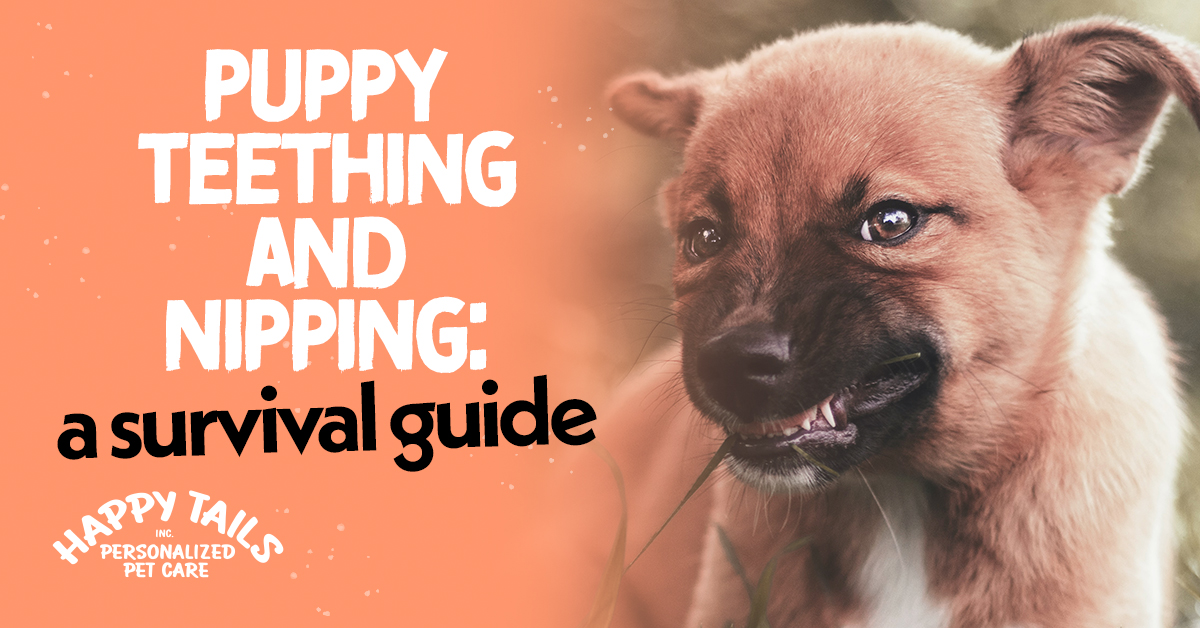
During the teething phase, it is crucial to provide proper dental care for your teething puppy. This involves choosing the right chew toys that are specifically designed for teething puppies. Look for toys that are durable, non-toxic, and have different textures to massage your puppy's gums while they chew.
In addition to chew toys, practicing good dental hygiene is essential. You can start by gently brushing your puppy's teeth using a soft toothbrush and a toothpaste formulated for dogs. This will help prevent tartar buildup and maintain healthy gums.
Regular dental check-ups with your veterinarian are also important to ensure proper dental care for your teething puppy. Your vet can assess the health of your puppy's teeth and provide any necessary treatments or recommendations.
By providing proper dental care, you can ensure that your teething puppy develops strong and healthy teeth while minimizing discomfort during this phase.
Choosing the right chew toys for teething puppies

Choosing the right chew toys for teething puppies is essential to ensure their safety and promote healthy dental development. Look for toys specifically designed for teething puppies, as they are made with softer materials that are gentle on their gums. Avoid toys that are too hard or have small parts that can be easily chewed off and swallowed. Opt for toys with different textures, such as rubber or nylon, to provide variety and satisfy their natural chewing instincts. Remember to supervise your puppy while they play with their chew toys to prevent any accidents or choking hazards.
Dental hygiene tips for teething puppies

During the teething phase, it's crucial to maintain good dental hygiene for your puppy. Here are some dental hygiene tips to keep in mind:
- Brush their teeth: Introduce your puppy to tooth brushing early on. Use a soft-bristled toothbrush and pet-friendly toothpaste. Start with gentle strokes and gradually increase the duration as your puppy gets used to it.
- Provide chew toys with dental benefits: Opt for chew toys specifically designed to promote dental health. These toys help massage your puppy's gums and clean their teeth while they chew.
- Monitor their chewing habits: Keep an eye on what your puppy is chewing on, ensuring it's safe and suitable for teething puppies. Avoid hard objects that can damage their teeth or pose a choking hazard.
- Regular veterinary check-ups: Schedule regular dental check-ups with your veterinarian to ensure optimal dental health for your teething puppy.
By implementing these dental hygiene practices, you can help maintain your teething puppy's oral health and prevent potential dental issues as they grow older.
Managing Your Puppy's Discomfort
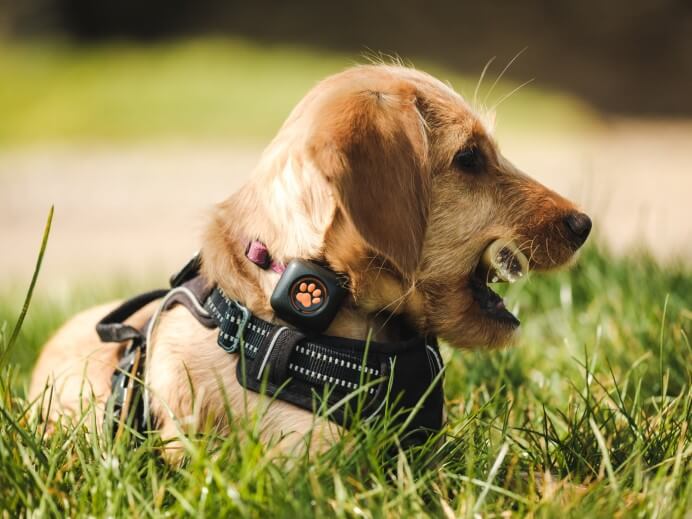
During the teething phase, puppies may experience discomfort and pain as their new teeth come in. As a responsible pet owner, it is crucial to help alleviate their discomfort. One natural remedy for teething pain is to offer cold items for your puppy to chew on, such as frozen carrots or a chilled teething toy. Additionally, you can provide gentle massage to your puppy's gums using your finger or a wet cloth. It is important to avoid offering items that are too hard or could potentially damage their teeth. Consulting with your vet can also provide additional suggestions for managing your puppy's discomfort during this phase.
Natural remedies for teething pain in puppies

When it comes to soothing teething pain in puppies, there are natural remedies that can provide relief. One such remedy is frozen washcloths. Simply wet a clean washcloth, fold it up, and place it in the freezer until cold. The cold temperature will help numb your puppy's gums and reduce inflammation. Another natural remedy is using chamomile tea. Brew a cup of chamomile tea, let it cool down, and then soak a clean cloth in the tea. Place the cloth in the freezer for a few minutes before giving it to your puppy to chew on. Chamomile has anti-inflammatory properties and can help alleviate teething discomfort.
Tips for soothing a teething puppy

During the teething phase, puppies experience discomfort and may exhibit signs of pain or agitation. As a responsible pet owner, it is crucial to provide them with ways to soothe their sore gums and alleviate their discomfort. One effective method is to offer them frozen treats or toys. The cold temperature can help numb their gums and provide relief. Additionally, gently massaging their gums with your finger can also offer comfort. In some cases, using teething gels specifically designed for puppies can help alleviate pain. It's important to consult with your veterinarian to ensure you are using safe and appropriate products for your puppy's needs.
Protecting Your Belongings during the Teething Phase
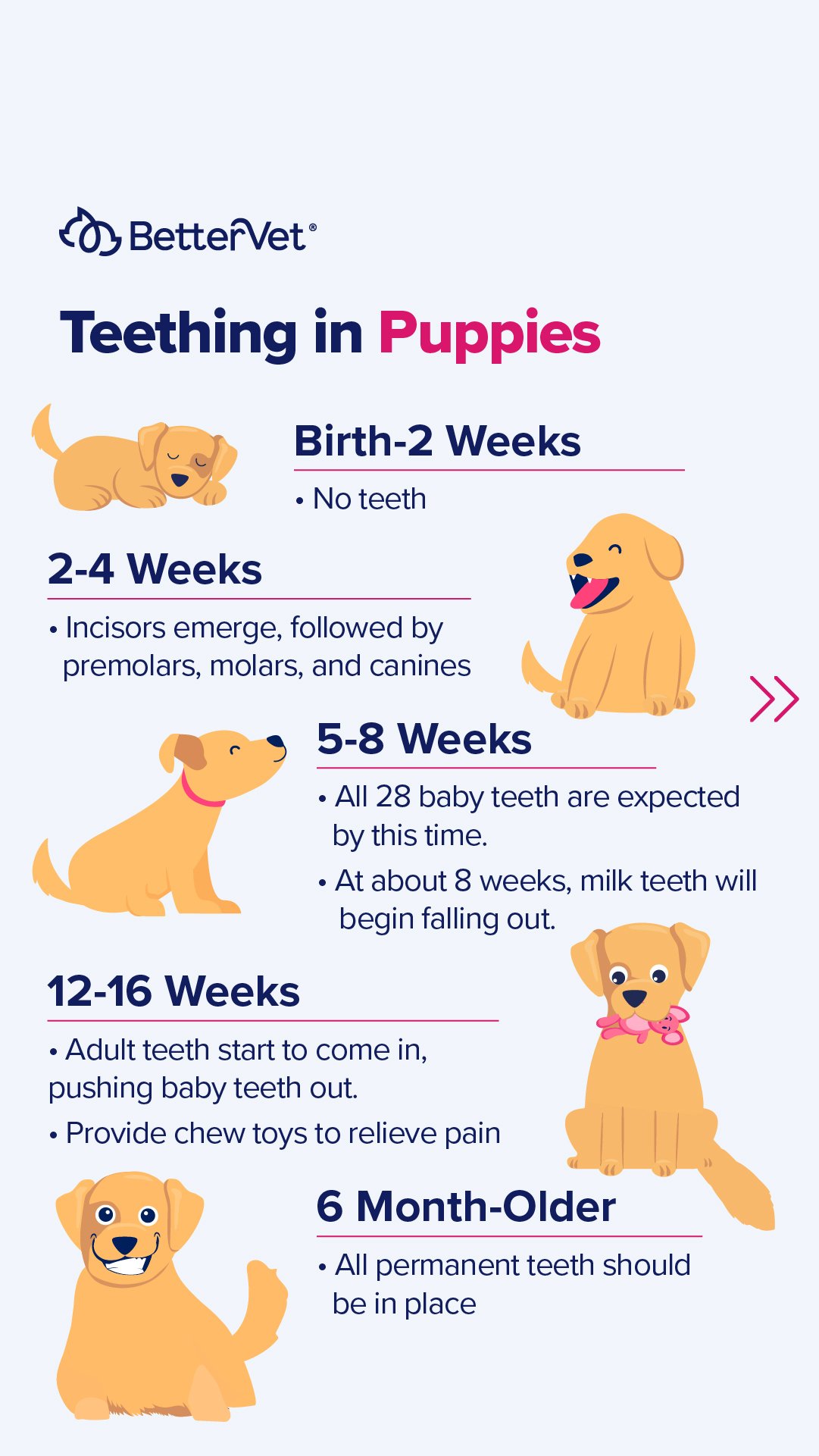
During the teething phase, it's natural for puppies to have an urge to chew on objects to relieve their discomfort. However, this can lead to damage of your belongings if not properly managed. To protect your belongings, start by puppy-proofing your home. Keep valuable items out of reach and secure cords and wires to prevent potential chewing hazards. Additionally, provide your puppy with appropriate chew toys and redirect their attention whenever you catch them chewing on something they shouldn't. Consistency is key, so be patient and consistent in enforcing boundaries. Remember, with proper training and management, you can keep your belongings safe while your puppy goes through the teething phase.
Puppy-proofing your home

Puppy-proofing your home is an essential step to take during the teething phase. Puppies, like human babies, explore the world with their mouths and have a tendency to chew on anything they can find. To ensure their safety and protect your belongings, it's important to create a puppy-proof environment. Start by securing loose cords and electrical wires out of reach, as chewing on these can lead to injury or electrocution. Store cleaning supplies, chemicals, and medications in cabinets that are inaccessible to your puppy. Keep valuable items such as shoes, clothes, and remotes out of reach or in closed closets. Finally, make sure all houseplants are non-toxic and remove any small items that your pup could swallow. By taking these precautions, you can create a safe living space for your teething puppy.
Redirecting your puppy's chewing behavior

Redirecting your puppy's chewing behavior is an important aspect of managing the teething phase. It is normal for puppies to explore the world with their mouths and to alleviate the discomfort caused by teething through chewing. However, it is crucial to redirect this behavior onto appropriate items and away from your belongings.
One effective way to redirect your puppy's chewing behavior is by providing them with a variety of chew toys and bones specifically designed for teething puppies. These toys should be durable, safe, and satisfying for their urge to chew. Make sure to offer a range of textures, sizes, and shapes to keep them engaged.
Additionally, you can use taste deterrents on items you don't want your puppy to chew on. These deterrents are safe and discourage chewing by giving off an unpleasant taste or smell. Common taste deterrents include bitter apple spray or lemon juice.
To effectively redirect your puppy's chewing behavior, it is essential to catch them in the act and promptly intervene. When you notice your puppy chewing on an inappropriate item, calmly say "no" or "leave it" and replace it with one of their designated chew toys. Praise and reward them when they chew on the appropriate toy instead.
Consistency is key when redirecting your puppy's chewing behavior. Be patient and persistent in teaching them what they can and cannot chew on. With time, as their adult teeth start coming in fully, their need to chew will decrease.
Remember that redirection requires supervision and management. If you cannot provide direct supervision for your puppy during the teething phase, consider using baby gates or playpens to limit their access to certain areas of your home where they might be tempted to chew on inappropriate items.
By redirecting your puppy's chewing behavior onto suitable toys and bones, you can protect your belongings while also helping them soothe their teething discomfort in a healthy way.
Training Your Puppy during the Teething Phase
:quality(75))
During the teething phase, it is crucial to continue training your puppy to ensure they develop good habits and behavior. One important aspect of training during this time is teaching bite inhibition. Since puppies are prone to chewing and biting due to teething discomfort, it's essential to teach them how to control their bite strength. Positive reinforcement can be used when your puppy bites too hard, such as yelping or withdrawing attention momentarily. This helps them understand that biting too hard is not acceptable. Additionally, use positive reinforcement techniques when redirecting their chewing behavior towards appropriate chew toys. Consistency and patience are key in training your teething puppy effectively.
Teaching bite inhibition

Teaching bite inhibition is an essential aspect of puppy training, especially during the teething phase. Bite inhibition refers to teaching puppies how to control the force of their bites, allowing them to play and interact without causing harm or injury.
To teach bite inhibition, start by providing appropriate chew toys for your puppy to redirect their chewing behavior. When your puppy bites too hard during playtime, let out a high-pitched yelp to mimic the sound of another puppy in pain. This will help your puppy understand that their bite was too strong.
Additionally, if your puppy continues biting after the yelp, you can briefly withdraw attention by turning away or leaving the room. This teaches them that biting leads to a loss of attention and playtime.
Consistency and positive reinforcement are key when teaching bite inhibition. Reward and praise your puppy when they bite softly or choose their chew toy instead of your hand or furniture. With time and patience, they will learn how to control their bites effectively.
Using positive reinforcement for chewing behavior
Exercise and Enrichment for Teething Puppies

Engaging in regular exercise and providing enrichment activities can be beneficial for teething puppies. Physical exercise not only helps tire out your puppy, but it also helps relieve their desire to chew and alleviate some of the discomfort associated with teething. Taking your puppy for walks, playing fetch, or allowing them to run around in a safe and secure area can be great options for physical exercise. Additionally, providing mental stimulation through interactive toys, puzzle games, and training sessions can help keep their minds occupied and prevent them from focusing on their teeth. Remember to adjust the intensity and duration of exercise based on your puppy's age and breed to avoid overexertion. By incorporating both physical exercise and mental stimulation into your puppy's routine, you can help them stay healthy, happy, and distracted from the challenges of teething.
Importance of physical exercise for teething puppies

Physical exercise plays a crucial role in the overall development and well-being of teething puppies. During the teething phase, puppies often experience discomfort and restlessness. Regular exercise helps alleviate these symptoms by promoting healthy blood circulation and reducing swelling in their gums. Additionally, exercise provides an outlet for their boundless energy, preventing destructive behavior resulting from boredom or frustration. Engaging in physical activities such as walking, running, or playing fetch also helps to tire out teething puppies, making them more likely to sleep and reduce chewing on inappropriate objects. Regular exercise is essential for keeping teething puppies happy, healthy, and mentally stimulated.
Mental stimulation activities for teething puppies

Mental stimulation is just as important for teething puppies as physical exercise. Engaging their minds can help alleviate boredom and prevent destructive behaviors. There are several activities that can provide mental stimulation for your teething puppy. Puzzle toys are a great option as they require problem-solving skills to retrieve treats or toys hidden inside. Teaching basic obedience commands such as sit, stay, and fetch can also stimulate their brains while reinforcing good behavior. Additionally, introducing new toys or rotating existing ones can keep them mentally engaged. Remember to supervise playtime and choose age-appropriate activities that won't aggravate their teething discomfort.
Healthy Diet for Teething Puppies

During the teething phase, it is crucial to provide your puppy with a healthy and balanced diet that promotes their dental health. Opt for high-quality dog food that contains essential nutrients such as protein, vitamins, and minerals. Consider choosing puppy-specific formulas that are specially formulated to support their growing bodies and teeth. Additionally, incorporate dental-friendly treats into their diet, such as dental chews that can help alleviate teething discomfort and promote good oral hygiene. It is important to avoid feeding your teething puppy hard or crunchy foods that can further irritate their sensitive gums. Consult your veterinarian for specific dietary recommendations for your puppy during this stage.
What to feed your teething puppy

During the teething phase, it is important to provide your puppy with a diet that supports their oral health and aids in the teething process. Soft food options can be beneficial for puppies experiencing discomfort while chewing. Wet or canned dog food, or even soaked kibble, can be easier for them to chew and digest. Additionally, incorporating foods rich in vitamins and minerals can promote healthy gum and tooth development. Consider including foods like lean meats, vegetables, and fruits in their diet. Avoid hard or crunchy treats that may irritate their tender gums. Remember to consult with your veterinarian for specific dietary recommendations based on your puppy's needs.
Foods to avoid during the teething phase
:quality(75))
During the teething phase, it is important to be mindful of the foods you give to your puppy. Avoiding certain types of foods can help prevent further discomfort and potential dental issues. Firstly, stay away from hard treats or bones that can cause excessive pressure on their new teeth or potentially lead to tooth fractures. Additionally, avoid sticky or chewy foods that could get stuck in their teeth or cause gum irritation. It is also wise to steer clear of overly sugary or acidic foods, as these can contribute to tooth decay and gum disease. Opting for soft and easily chewable foods will provide relief and promote healthy dental development for your teething puppy.
Common Challenges during the Teething Phase

During the teething phase, puppy owners may face a number of common challenges. One of the main challenges is dealing with excessive chewing. As puppies' teeth become loose and fall out, they will naturally seek relief by chewing on anything they can find. This can lead to damage to furniture, shoes, and other household items. In addition to excessive chewing, some puppies may also experience behavior changes such as increased irritability or a decrease in appetite. It's important for owners to understand that these challenges are temporary and can be managed with patience, consistency, and appropriate training techniques.
Dealing with excessive chewing
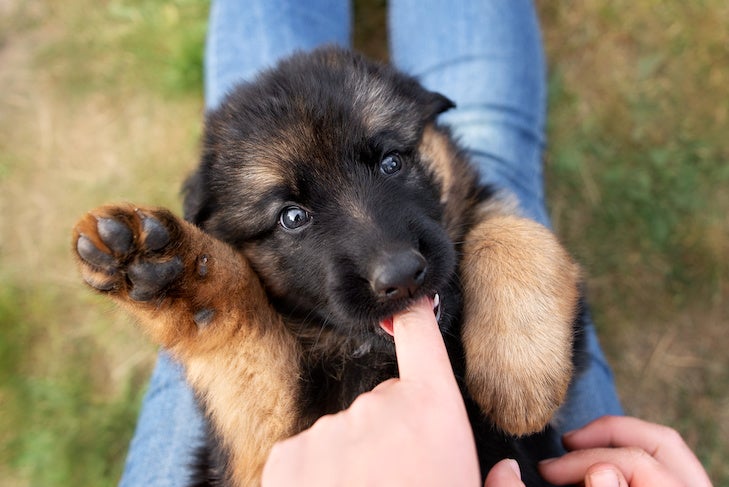
Dealing with excessive chewing is a common challenge during the puppy teething phase. Puppies often have an instinctive need to chew as their adult teeth start to come in, and this can lead to destructive behavior if not managed properly. To address excessive chewing, it's crucial to provide your puppy with appropriate chew toys that are specifically designed for teething puppies. These toys should be durable and safe for them to chew on. It's also important to redirect their chewing behavior by offering alternative items, such as frozen teething rings or Kong toys filled with treats. Consistency in redirecting their attention and providing suitable alternatives will help curb excessive chewing and preserve your belongings.
Managing puppy behavior changes

Managing puppy behavior changes can be a challenging aspect of the teething phase. As puppies go through the discomfort of teething, they may exhibit changes in their behavior. It is common for them to become more irritable, restless, and prone to chewing on things they shouldn't. To manage these behavioral changes, it is important to provide appropriate outlets for their energy. Engaging them in regular exercise and playtime can help channel their energy and prevent destructive behaviors. Additionally, setting up a designated area with safe chew toys and interactive puzzles can help redirect their focus and keep them entertained. Consistency, positive reinforcement, and patience are key when managing these behavioral changes during the teething phase.
Conclusion
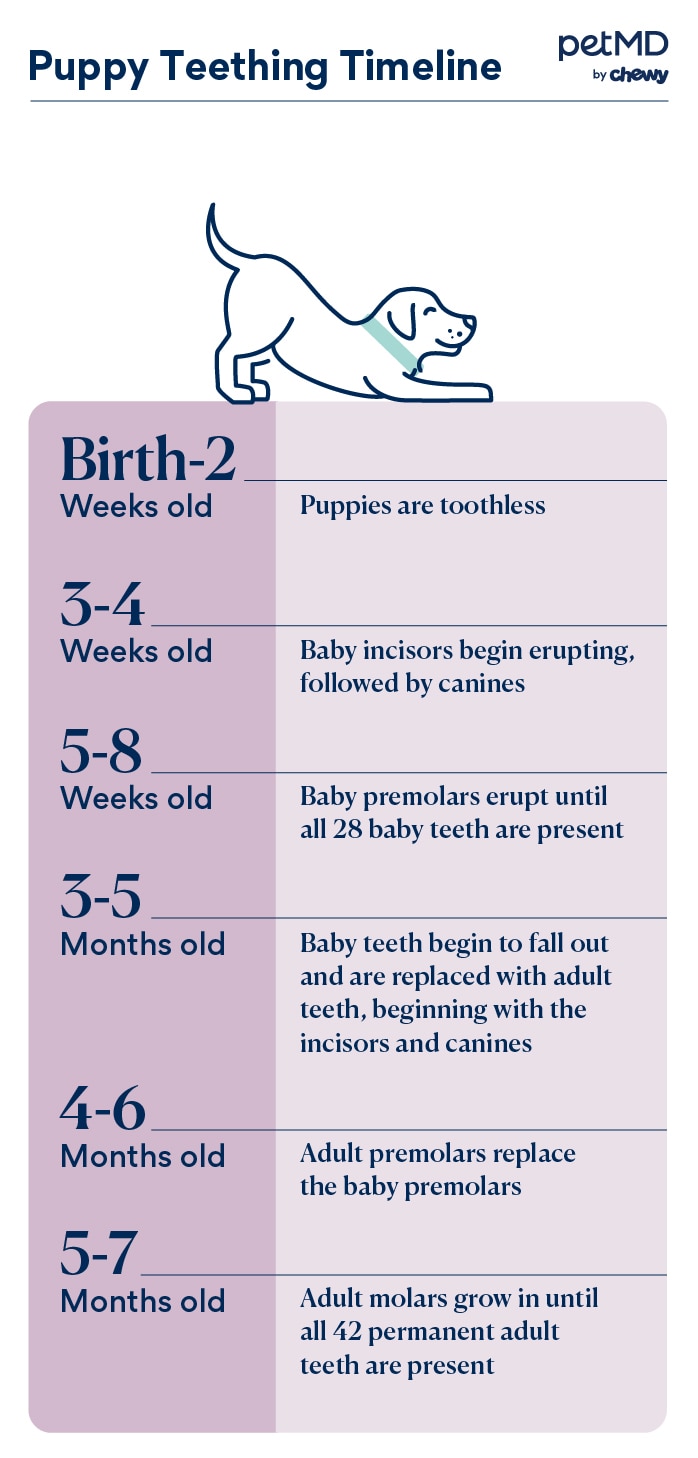
In conclusion, the teething phase can be a challenging time for both puppies and their owners. However, with patience and consistency, it is possible to navigate this stage successfully. Understanding the signs and symptoms of teething, providing proper dental care, managing your puppy's discomfort, and protecting your belongings are all essential steps in surviving this phase. Moreover, training your puppy and providing them with physical exercise and mental stimulation can help alleviate some of the challenges associated with teething. Lastly, maintaining a healthy diet for your teething puppy is crucial. Remember, the key to surviving the teething phase is to remain patient and offer consistent guidance to your furry friend. Additional resources are available for further assistance and information.
Patience and consistency: Key to surviving the teething phase
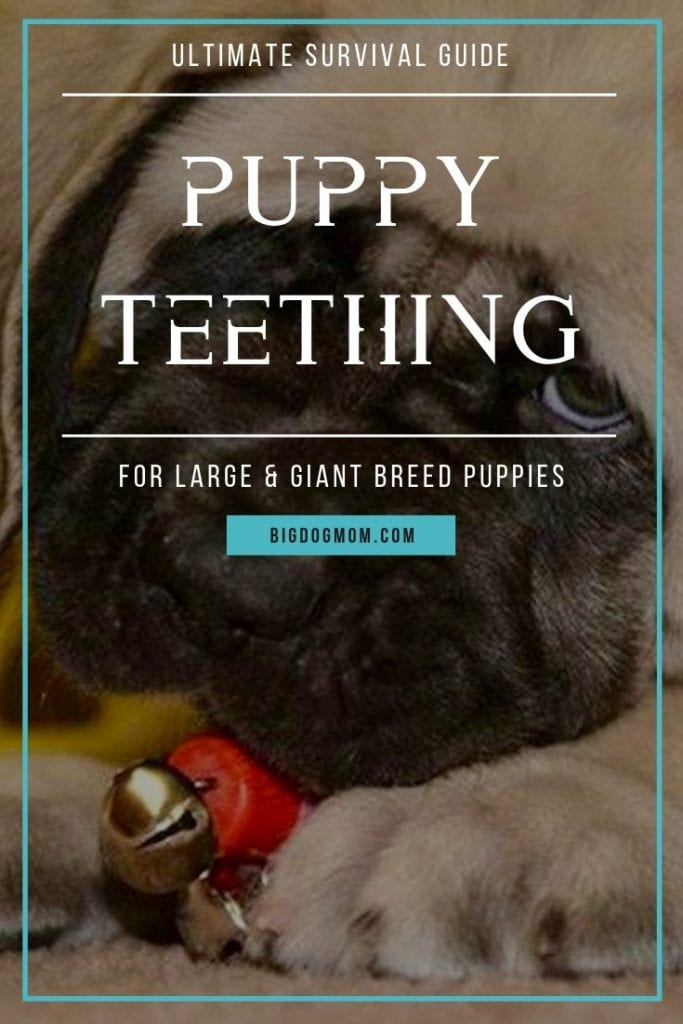
During the teething phase, it's important to remember that patience and consistency are key to helping your puppy get through this challenging period. Patience is needed because teething can be a frustrating time for both you and your furry friend. Your puppy may display behaviors such as increased chewing, irritability, or discomfort. It's crucial to remain calm and understanding, providing your puppy with guidance and support.
Consistency is also vital during this phase. Establishing a routine for dental care, training, exercise, and feeding will help your puppy feel secure and understand what is expected of them. Consistently redirecting their chewing behavior away from inappropriate items and onto appropriate chew toys will teach them what is acceptable.
Remember, the teething phase is temporary, and with patience and consistency, both you and your puppy will successfully navigate this stage together.
Resources for further assistance and information

If you're struggling to navigate the puppy teething phase, don't worry. There are plenty of resources available to provide you with the assistance and information you need. One great resource is your veterinarian. They can offer guidance on teething, recommend teething toys or chew treats, and even provide dental cleaning services if needed. Additionally, there are numerous books and online articles dedicated to puppy care and training that can offer valuable insights and tips. Don't hesitate to reach out to experienced dog trainers or join online forums where fellow dog owners share their experiences and advice. Remember, with the right resources, you can successfully navigate this challenging phase with your furry friend.




0 Comments